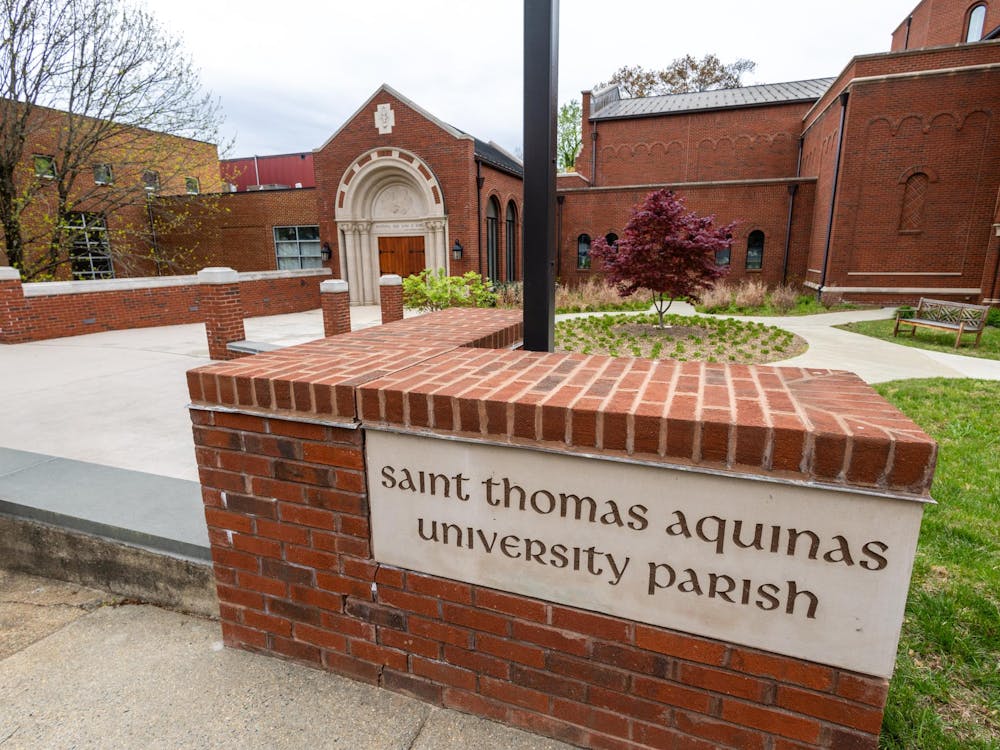Following Governor-elect Tim Kaine's inauguration in January, he will enter office with the same GOP-controlled General Assembly and a new Republican in the Lieutenant Governor's office, but the bipartisanship that was a hallmark of the Warner administration is slated to continue.
The Virginia Board of Elections officially announced Monday that Democrat Tim Kaine won the gubernatorial contest with 51.72 percent of the votes to beat both Republican Jerry Kilgore and Independent Ross Potts.
In the race for lieutenant governor, Republican Bill Bolling bested Democrat Leslie Byrne, earning 50.47 percent of the vote.
Republican Bob McDonnell was announced the victor of the attorney general's race, beating Democrat Creigh Deeds by 323 votes. Under Commonwealth law, however, when the margin of difference between two candidates is less then one percentage point, the losing candidate can file for a recount, according to the Board of Elections. Deeds has filed for a recount.
Kaine prepares to govern
With the election behind him, Kaine has assumed the title of governor-elect and begun the transition process which will end when he takes office after his inauguration ceremony in January in Williamsburg.
"Holding the swearing-in ceremony at the colonial capital gives us a wonderful and unique opportunity to celebrate Virginia," Kaine said in a Nov. 21 press release. "This inauguration will be historic, and we are building a series of events to encourage families from all over Virginia to participate."
The last Virginia governor to be inaugurated in Williamsburg was Thomas Jefferson. Throughout his campaign, Kaine compared himself to Jefferson.
"I would make a bet that there will be a major Jefferson reference in the inaugural address because the last governor inaugurated in Williamsburg was Thomas Jefferson," University Politics Prof. Larry J. Sabato said. "Both parties use Thomas Jefferson, and it is difficult to say what those ideals mean applied to current politics."
Kaine's weeks following the election have been filled with more then just ideological rhetoric, according to the Kaine campaign.
"He has been holding a series of town hall meetings to talk about transportation," Kaine spokesperson Delacey Skinner said. "It has been a very important part of the process for him to go out and talk to citizens in the Commonwealth about his ideas for transportation."
Kaine also has been working with his transition team to appoint his chief of staff and deputy chief of staff.
Bill Leighty, who was Gov. Mark R. Warner's chief of staff, will serve as Kaine's chief of staff, and Wayne Turnage will fill the office of deputy chief of staff.
According to Skinner, the governor-elect has sent a letter out to the staff working within the Warner administration asking those who wish to stay to submit their resumes to him.
"There is going to be a theme of consistancy," Skinner said. "That is one thing that Bill Leighty brings to his position. There will be a number of people who stay on, but there will also be a number of people who are new."
Carrying on Warner's legacy
Kaine, who served as Warner's lietenent governor, worked closely with Warner throughout his campaign. Now, the two continue to work together to facilitate a smooth transition of power.
"Mark Warner and Tim Kaine worked very closely over their time in office together and over the campaign, and they share similar goals," Skinner said.
The close association between Warner and Kaine might have helped him greatly in the elections, according to Sabato. He said many popular Virginia governors have been able to get their successors elected office, partially as a consequence of Virignia's one-term limit on the governor's office.
"The people of Virginia can see that Mark Warner and Tim Kaine have a record of bipartisanship," Virginia Democratic Party spokesperson Kevin Griffis said.
However, Griffis said he does not think that Kaine's association with Warner was the only thing that caused him to win the election.
"Tim was talking about the things that people cared about most and talking about his plan for the Commonwealth and the other candidate was not," Griffis said.
Upcoming issues
"It's obvious that [Kaine's] top priority is transportation, as it should be," Sabato said. "He has signaled this by holding town hall meetings. This would have been priority for anyone."
Skinner agreed but added that education is also important to the Governor-elect.
"I would say there are two issues that he talks about the most frequently," she said. "The most important issue facing the Commonwealth is education, and the most urgent is transportation."
During the campaign, Kaine proposed offering free pre-school education to all 4-year-olds. Now that he has taken office, he must work to get this proposal past the Republican-dominated legislature. The program would cost the Commonwealth as much as $300 million a year.
The strong economic legacy left by the Warner administration is another thing Kaine wants to support and expand.
"Certainly he [Kaine] wants to continue the fiscally sound policies that Governor Warner and Lieutenant Governor Kaine implemented during their time in office," Skinner said. "He also wants to create a strong economy and foster job growth and opportunity all across the Commonwealth."
Higher education also has priority on Kaine's agenda for the Commonwealth.
He "wants to ensure that we are upholding the tradition of excellence in our higher education institutions and work to fully fund the base adequacy formula," Skinner said.
The base adequacy formula is a formula which determines the minimum amount of money the state should provide for higher education.
Blue governor in a red state
While Kaine has many legislation proposals for the Commonwealth, he may have difficulty getting his proposals past his Republican colleagues, particulary those in the General Asssembly.
Sabato said that Kaine's biggest concern will probably be the Republican legislature and, to amuch lesser extent, working with Bolling.
"He simply cannot do much without the Republican legislature," Sabato said. "With only 322 votes we won't know the identity of the attorney general for a long time. The governor will not need to worry about Bolling, either. He does need to worry about the Republican legislature."
Bolling said that he agrees with Kaine on a number of issues and prefers to concentrate on them.
"I prefer to focus on the areas where we may be able to find agreement," he said. "We agree on the need to create a transportation system for the 21st century. We agree to promote a pro-business environment in Virginia. We agree that there is a need to do something to reform healthcare. We've got to get Medicare spending under control. We agree that we have a gang problem and that we need to find ways to address that. We agree that we need to fully fund higher education."
Warner was praised by Democrats and Republicans alike during his time in office for his ability to work in a bipartisan manner across the aisle. The question now becomes whether or not Kaine has the same skills.
"The governor-elect has worked in a bipartisan fashion throughout his career in public service," Skinner said. "He has a long record of bringing people together across a number of different divisions, including party lines."
Sabato agreed and said Kaine's personality makes him an easy person with whom to work.
"To a certain degree, he is a very congenial person, and no doubt he will be easy to work with -- but the two parties have very substantial philosophic differences," he said. "It is extremely difficult to bridge those in some circumstances. Warner wasn't able to do it all the way."
But Bolling said he is optimistic about his ability to work together with the governor-elect.
"We may not always agree on how to dot the i-s and cross the t-s," Bolling said. "If the governor-elect will govern in consistency with the principles of the people of Virginia, and with his campaign promises, then we will have a great deal in common."






